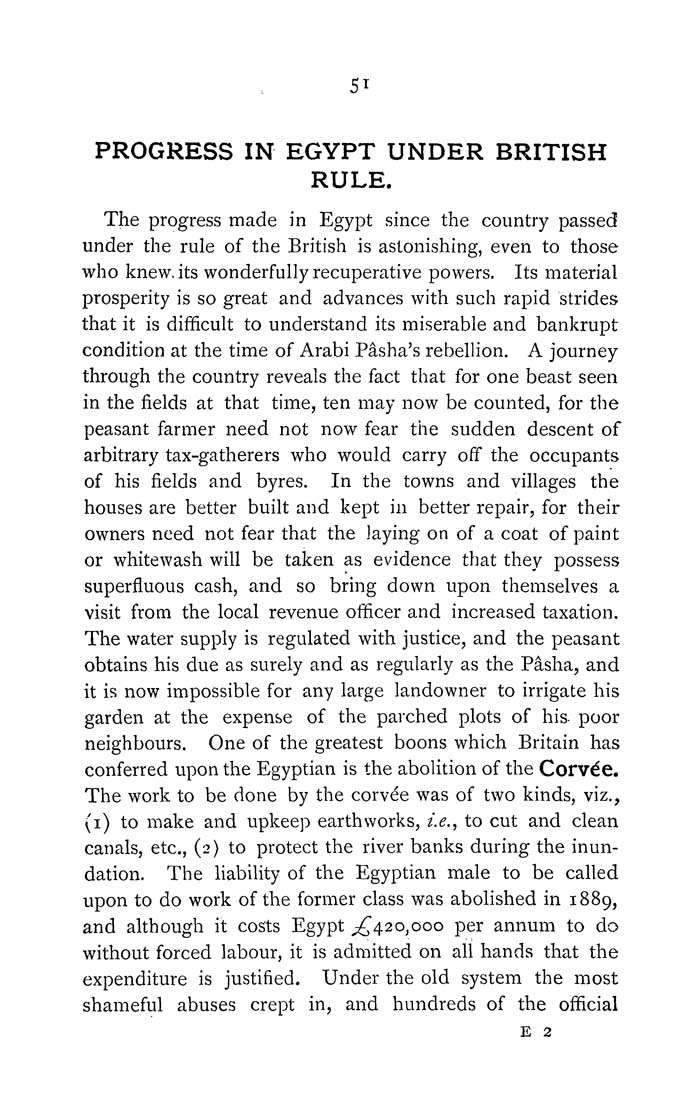5T
PROGRESS IN EGYPT UNDER BRITISH
RULE.
The progress made in Egypt since the country passed
under the rule of the British is astonishing, even to those
who knew, its wonderfully recuperative powers. Its material
prosperity is so great and advances with such rapid strides
that it is difficult to understand its miserable and bankrupt
condition at the time of Arabi Pasha's rebellion. A journey
through the country reveals the fact that for one beast seen
in the fields at that time, ten may now be counted, for the
peasant farmer need not now fear the sudden descent of
arbitrary tax-gatherers who would carry off the occupants
of his fields and byres. In the towns and villages the
houses are better built and kept in better repair, for their
owners need not fear that the laying on of a coat of paint
or whitewash will be taken as evidence that they possess
superfluous cash, and so bring down upon themselves a
visit from the local revenue officer and increased taxation.
The water supply is regulated with justice, and the peasant
obtains his due as surely and as regularly as the Pasha, and
it is now impossible for any large landowner to irrigate his
garden at the expense of the parched plots of his- poor
neighbours. One of the greatest boons which Britain has
conferred upon the Egyptian is the abolition of the Corv^e.
The work to be done by the corvee was of two kinds, viz.,
(i) to make and upkeep earthworks, i.e., to cut and clean
canals, etc., (2) to protect the river banks during the inun¬
dation. The liability of the Egyptian male to be called
upon to do work ofthe former class was abolished in 1889,
and although it costs Egypt ^420,000 per annum to do
without forced labour, it is admitted on all hands that the
expenditure is justified. Under the old system the most
shameful abuses crept in, and hundreds of the official
E 2
|








